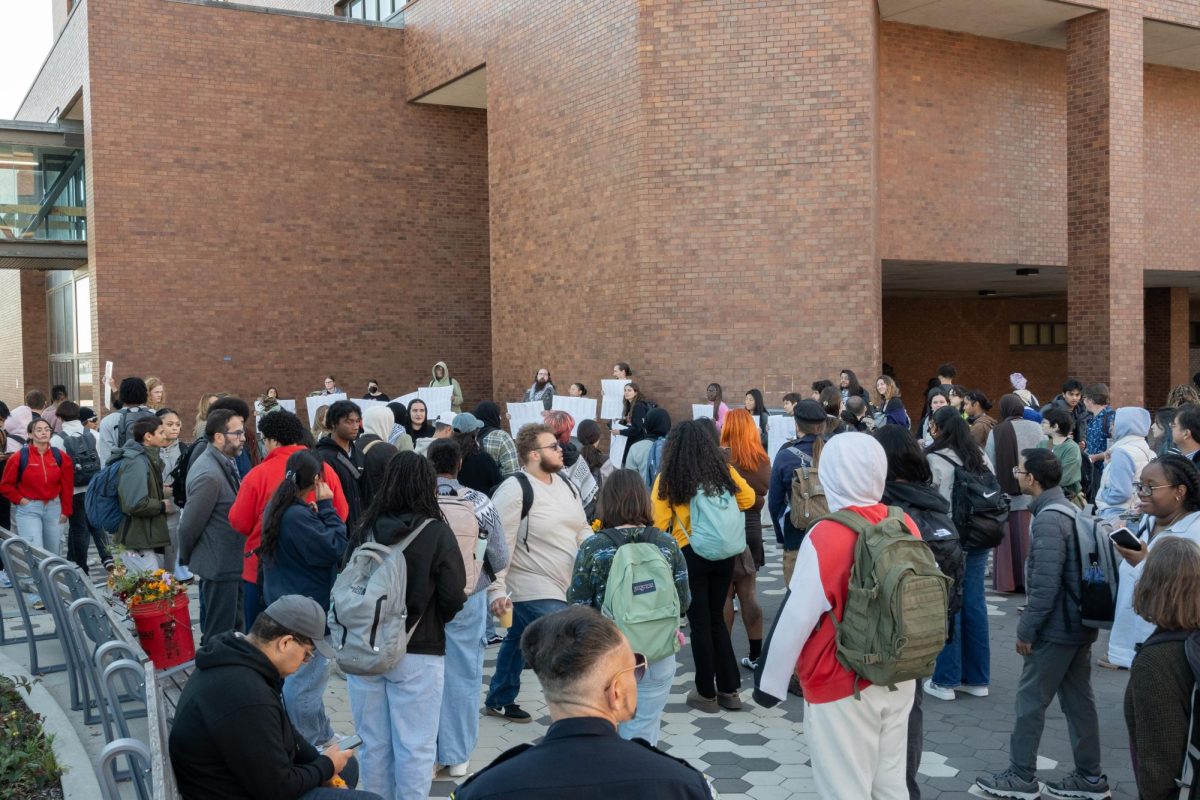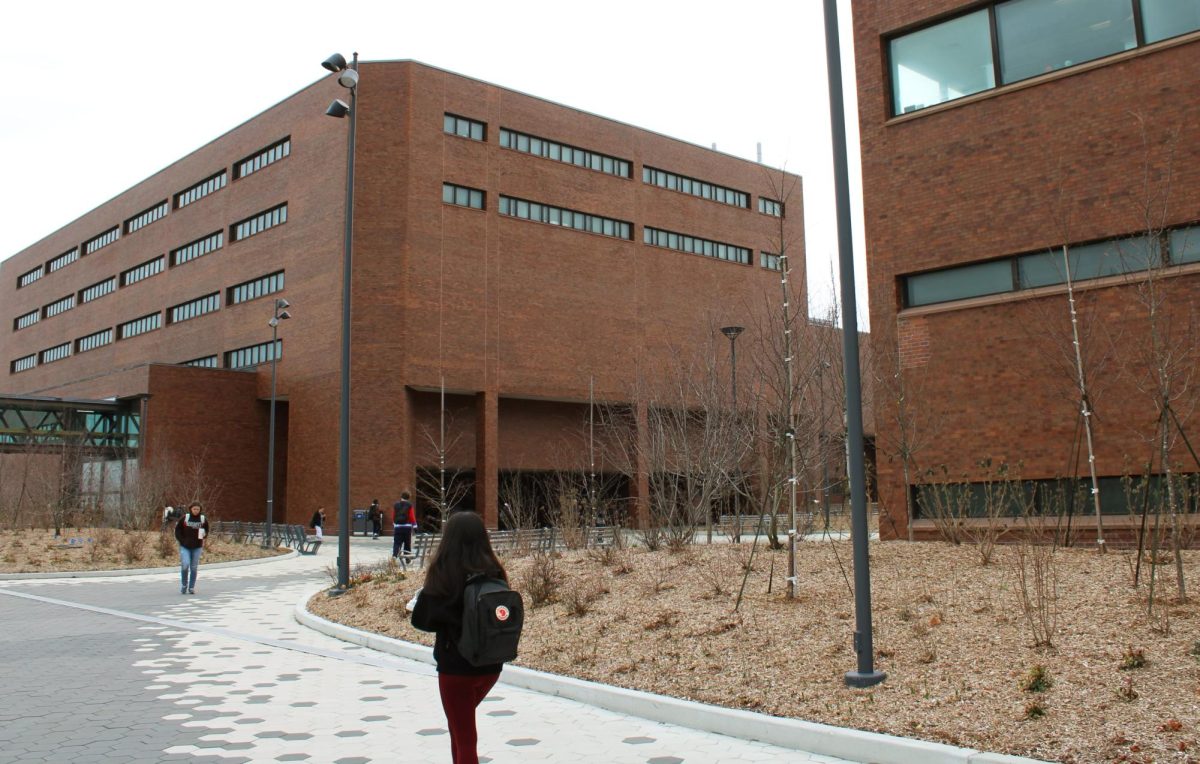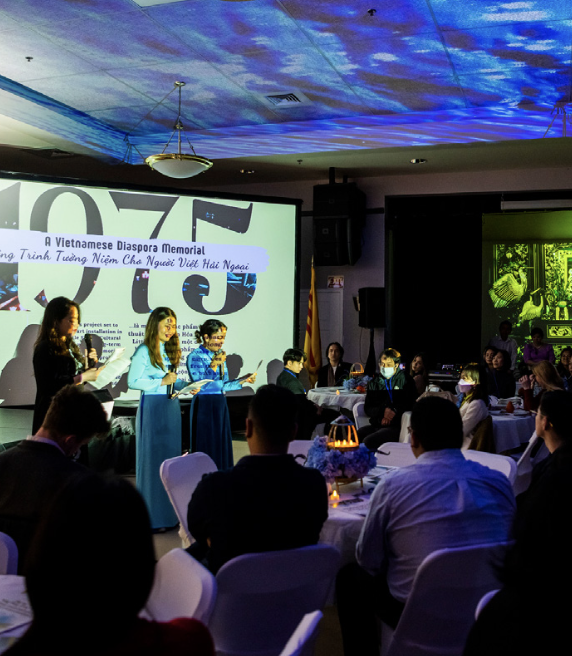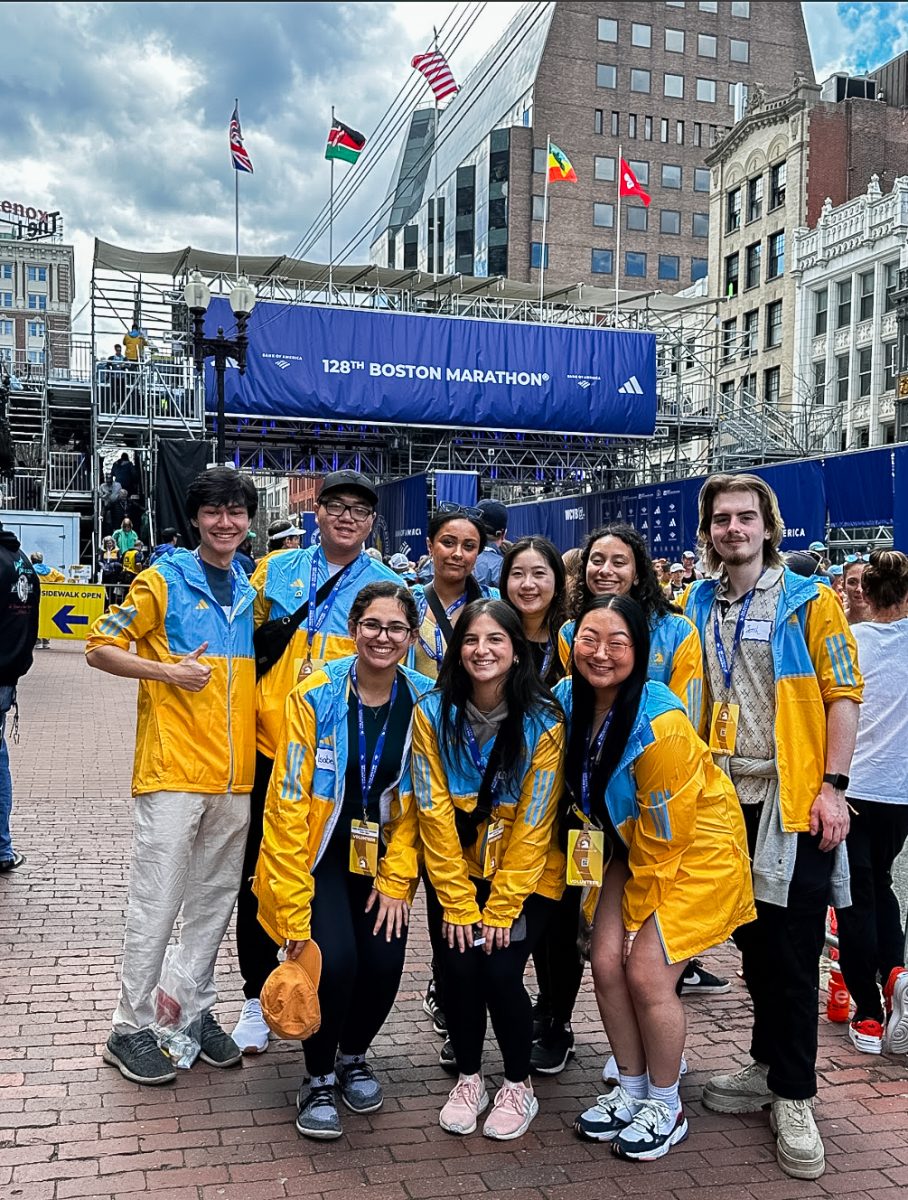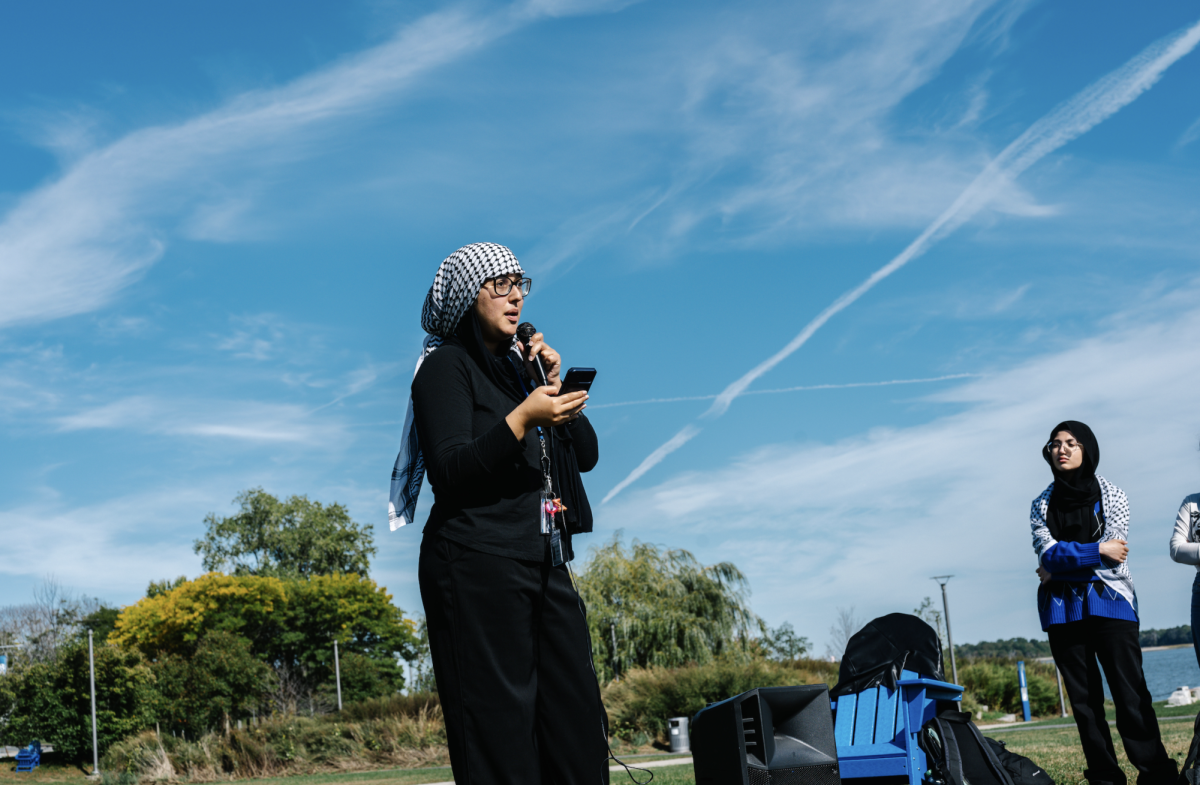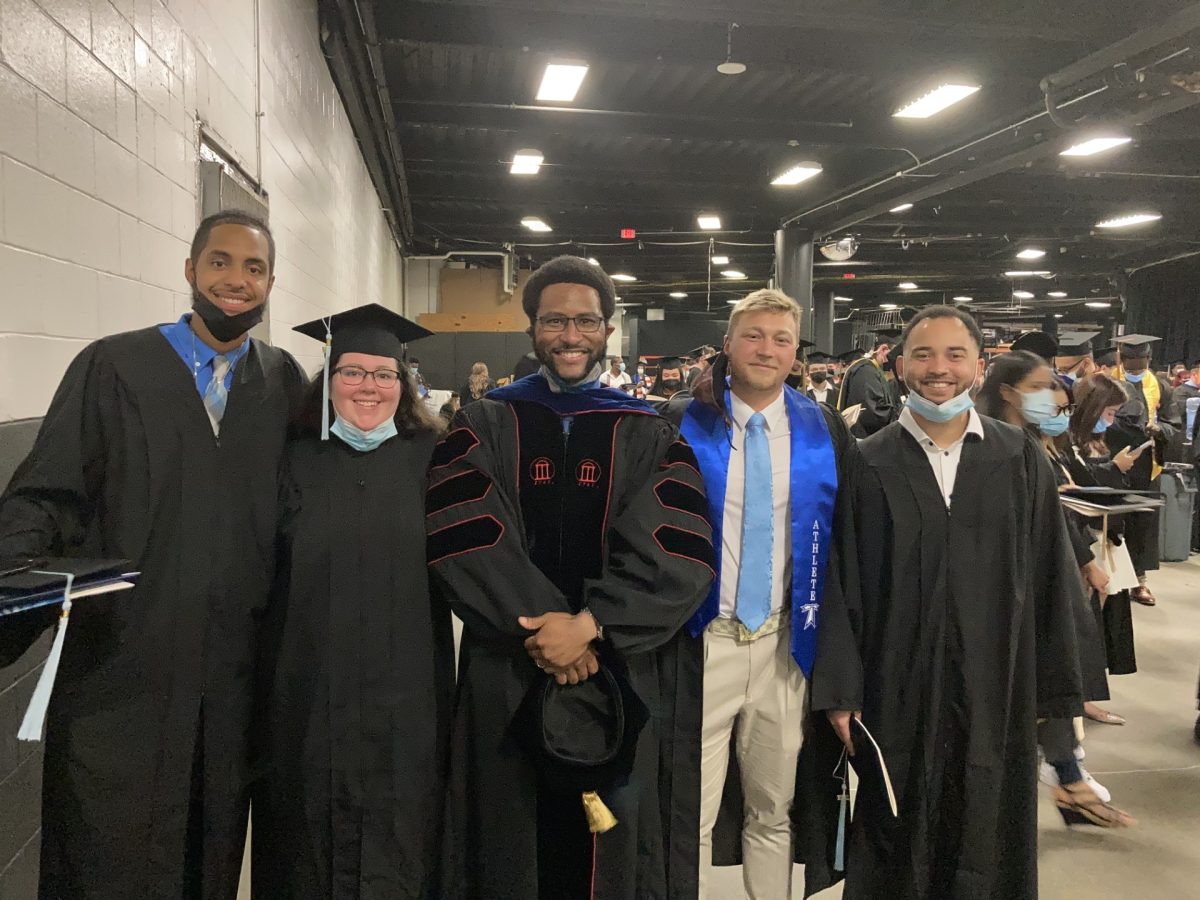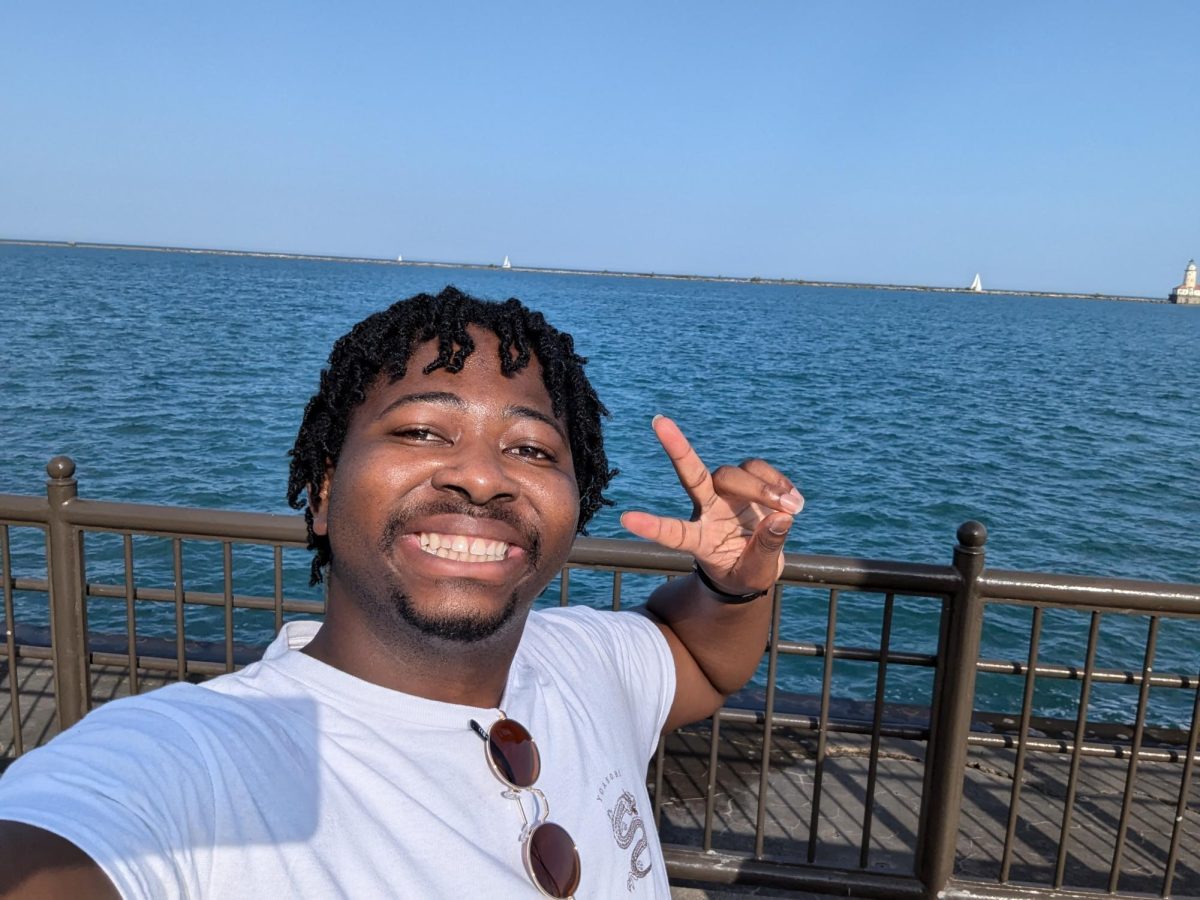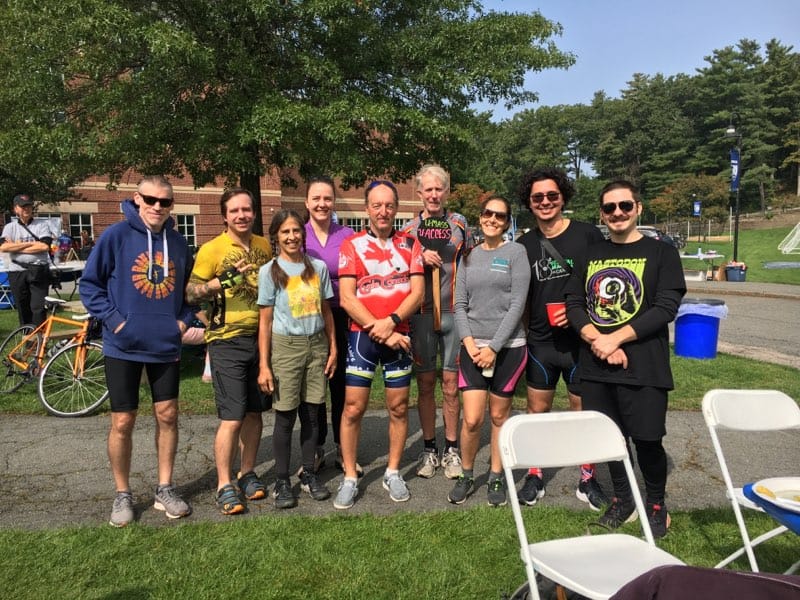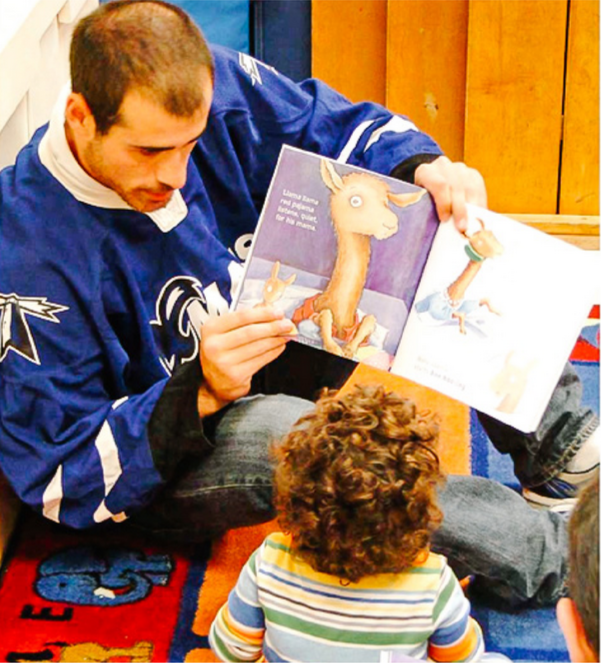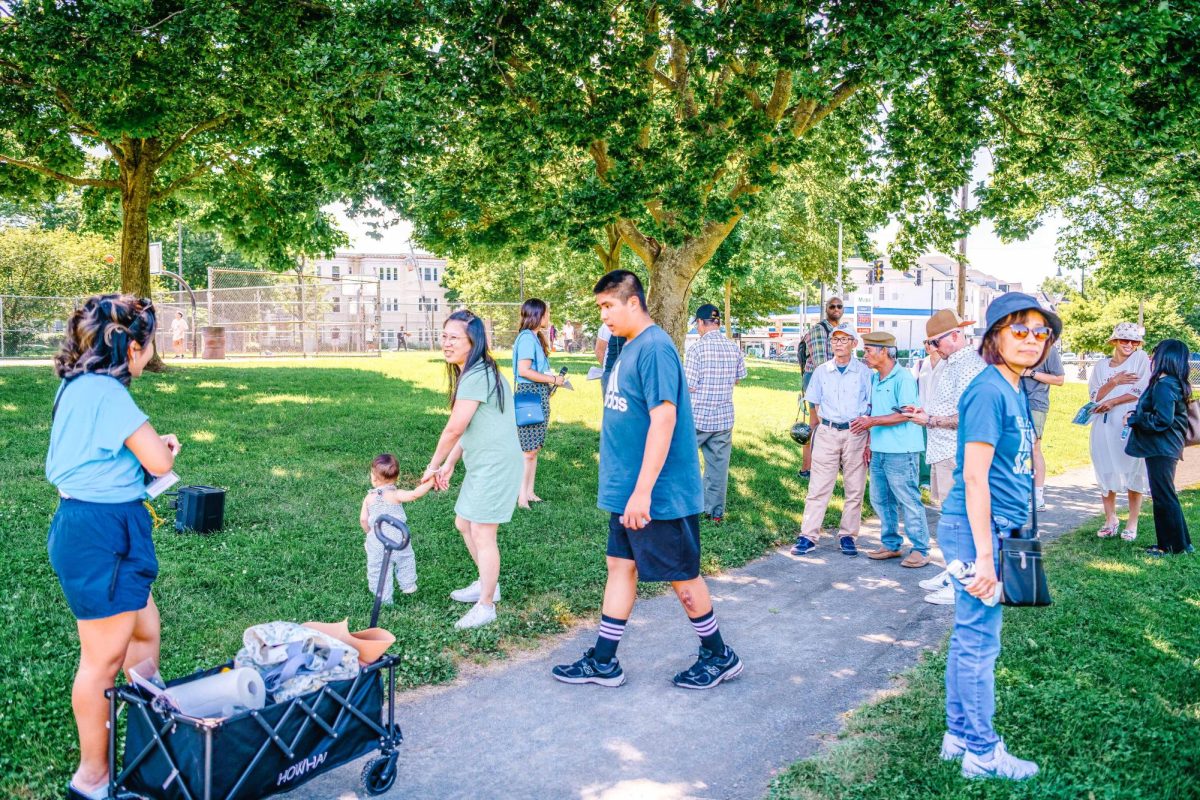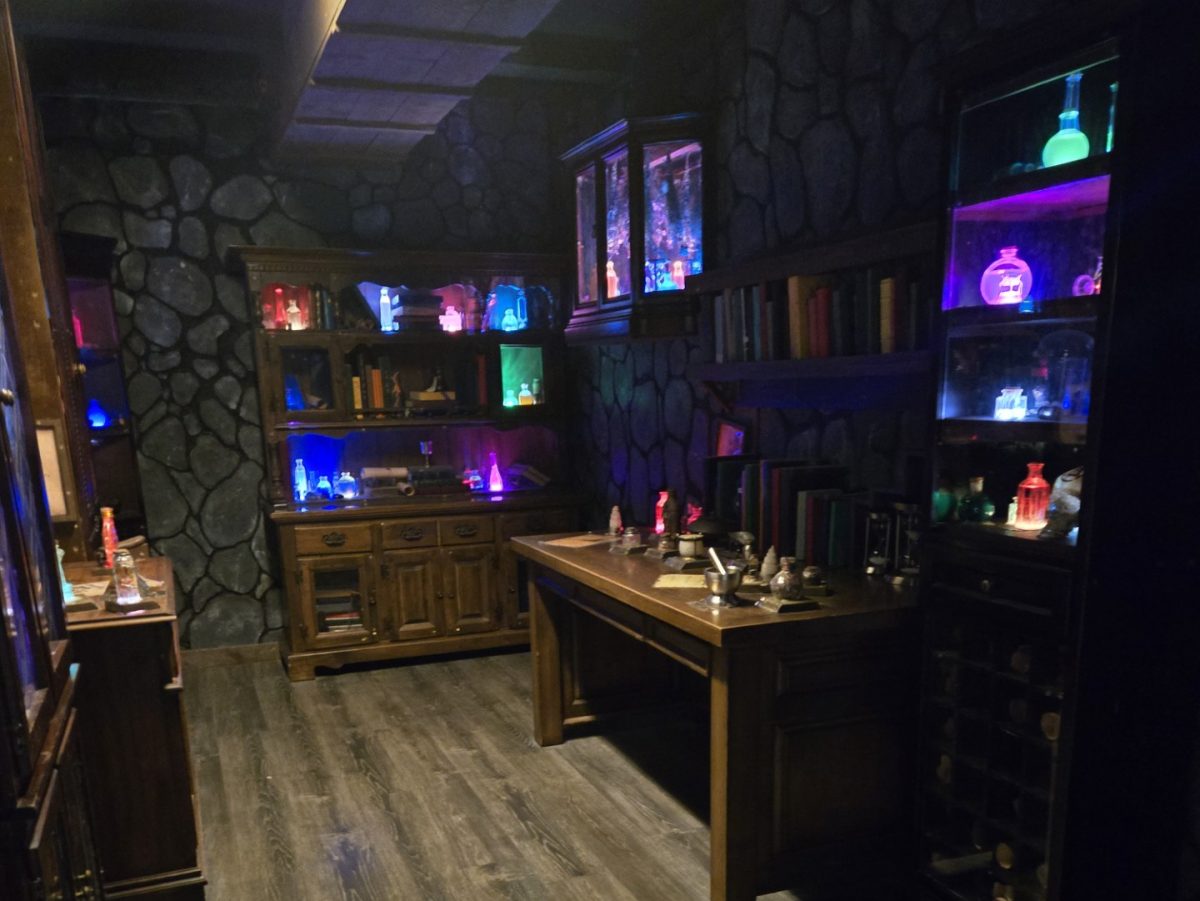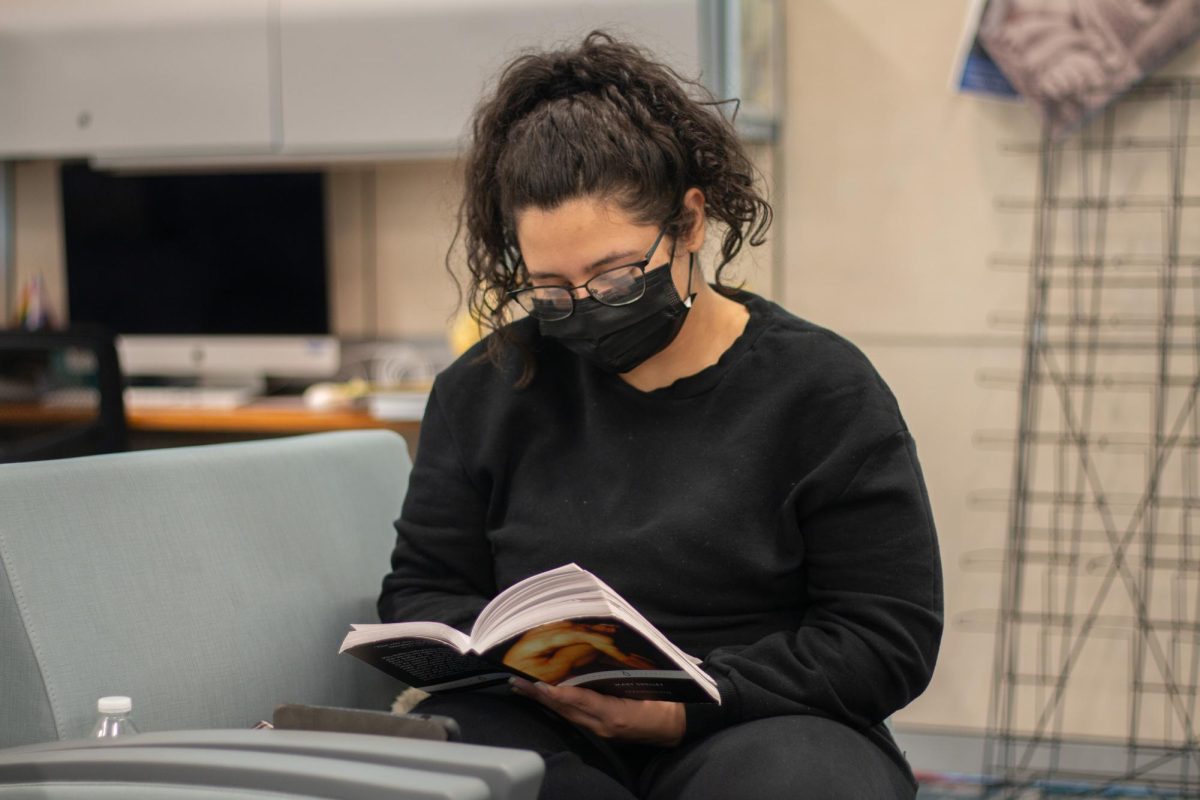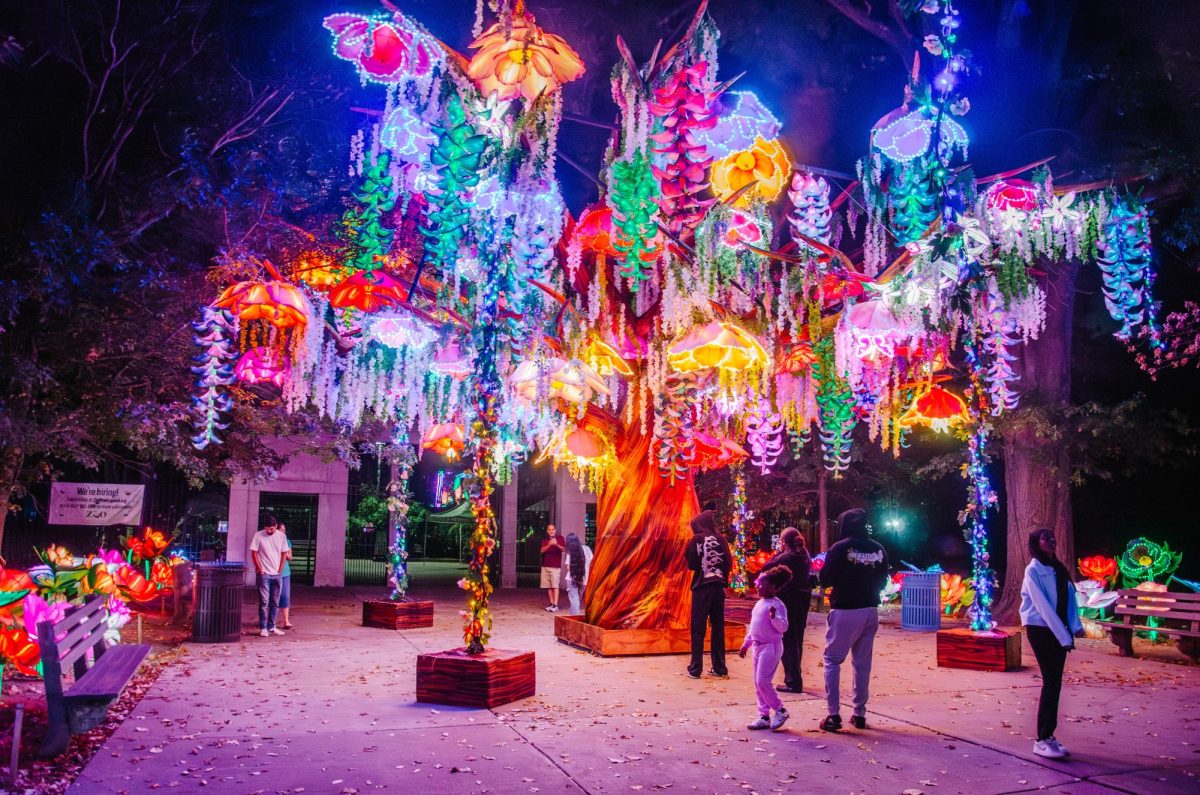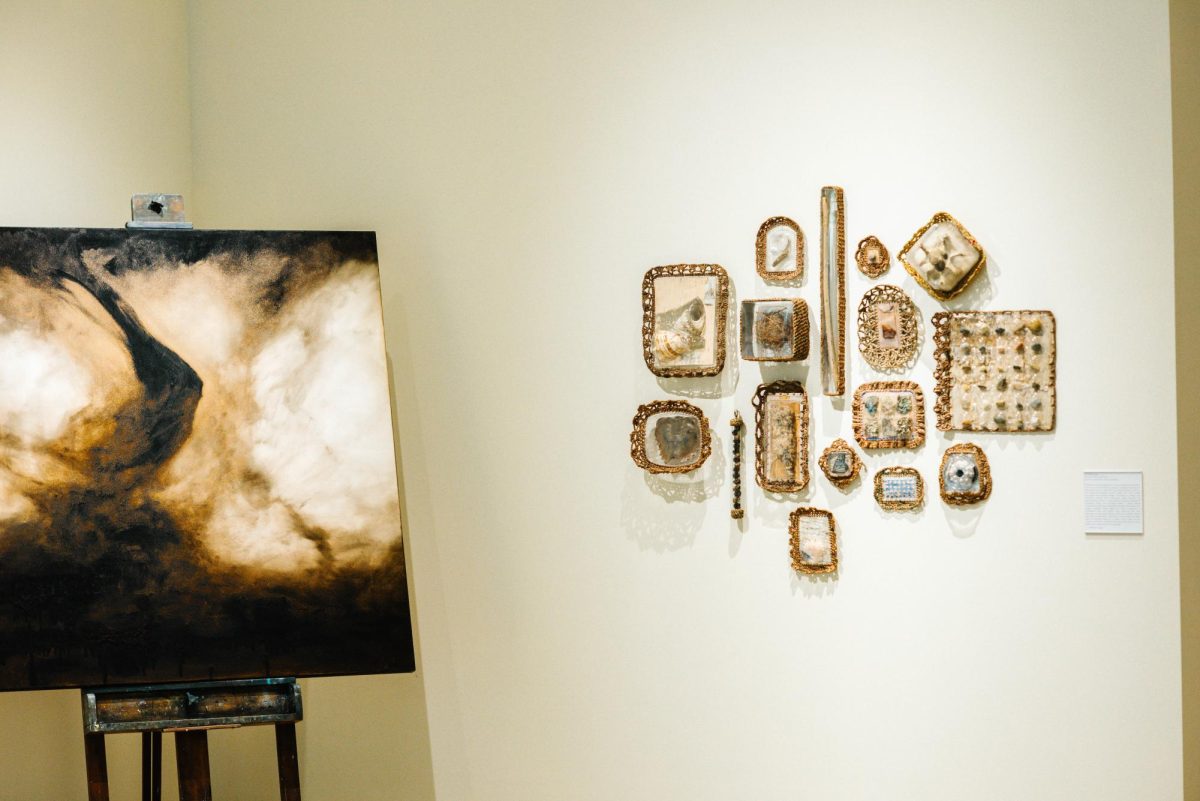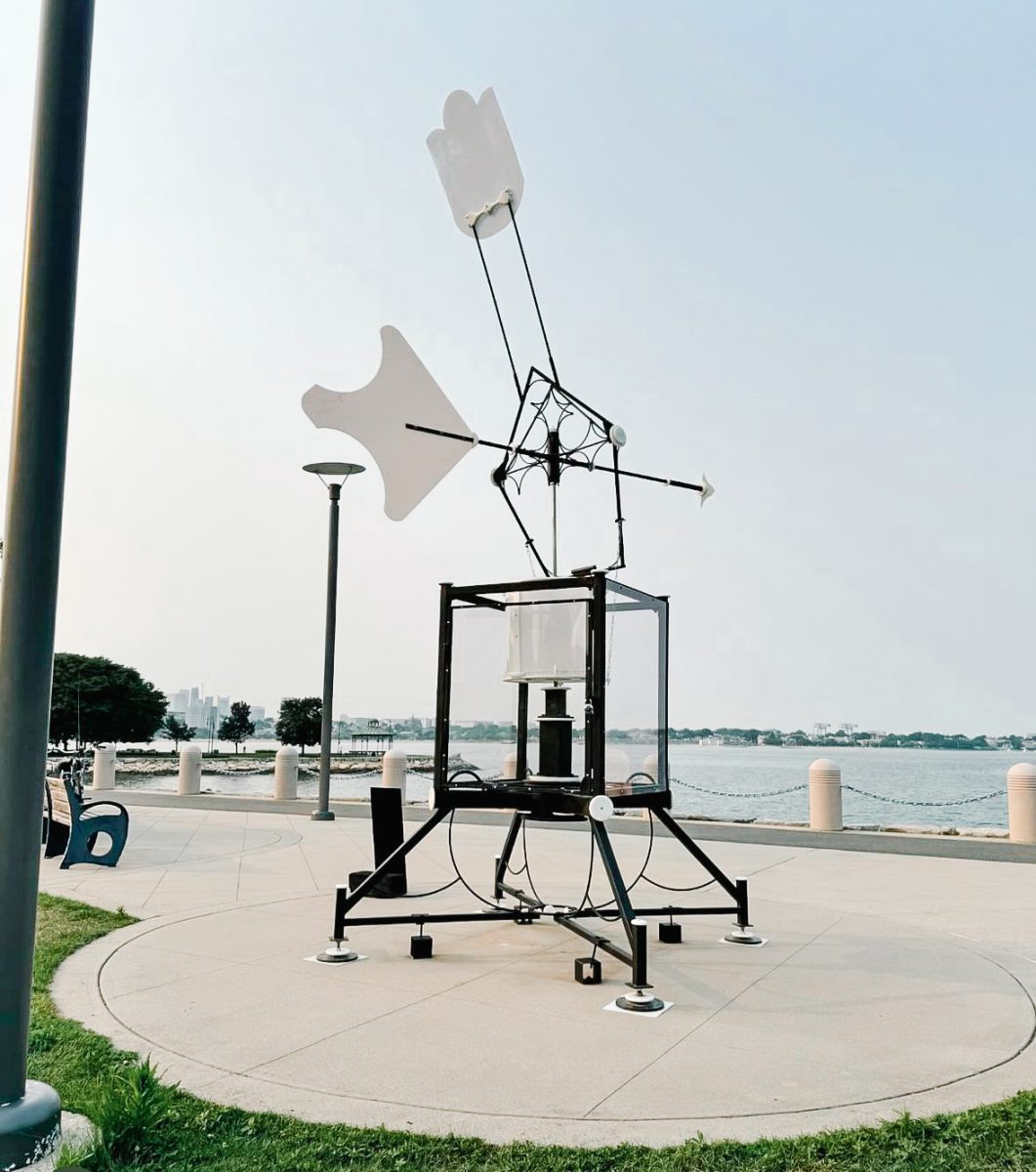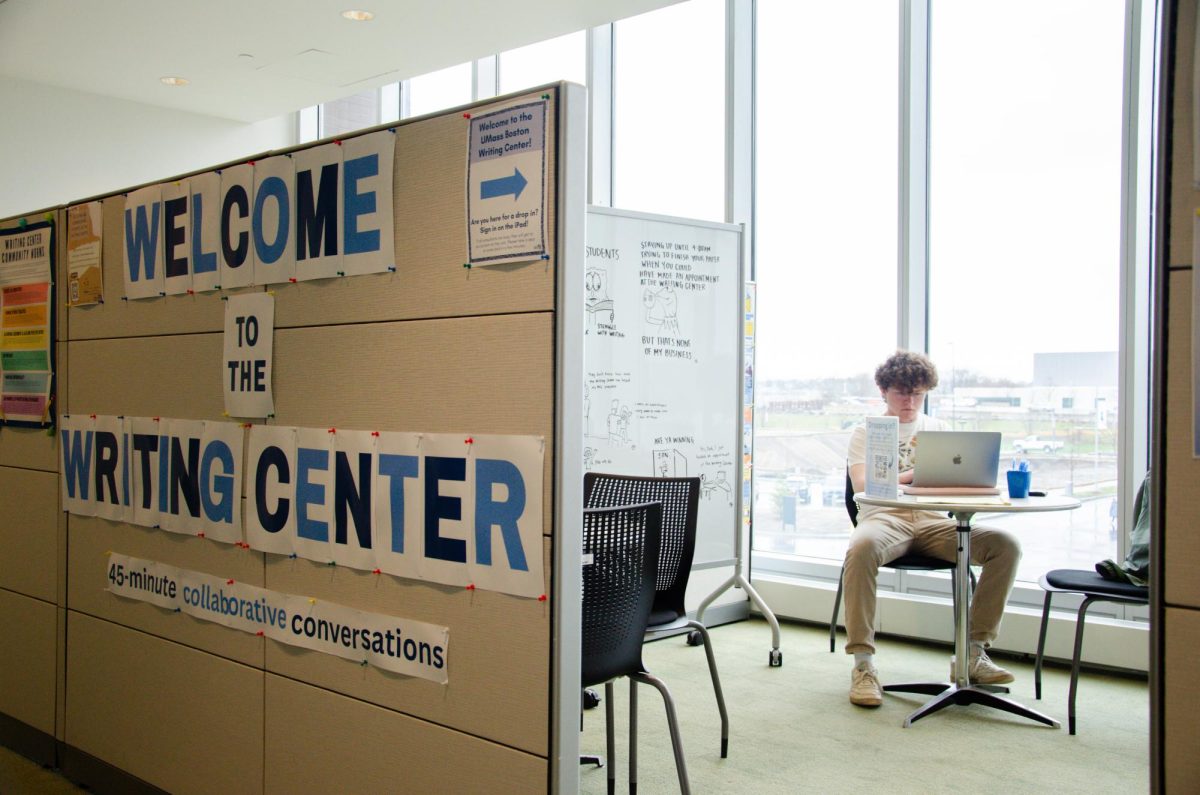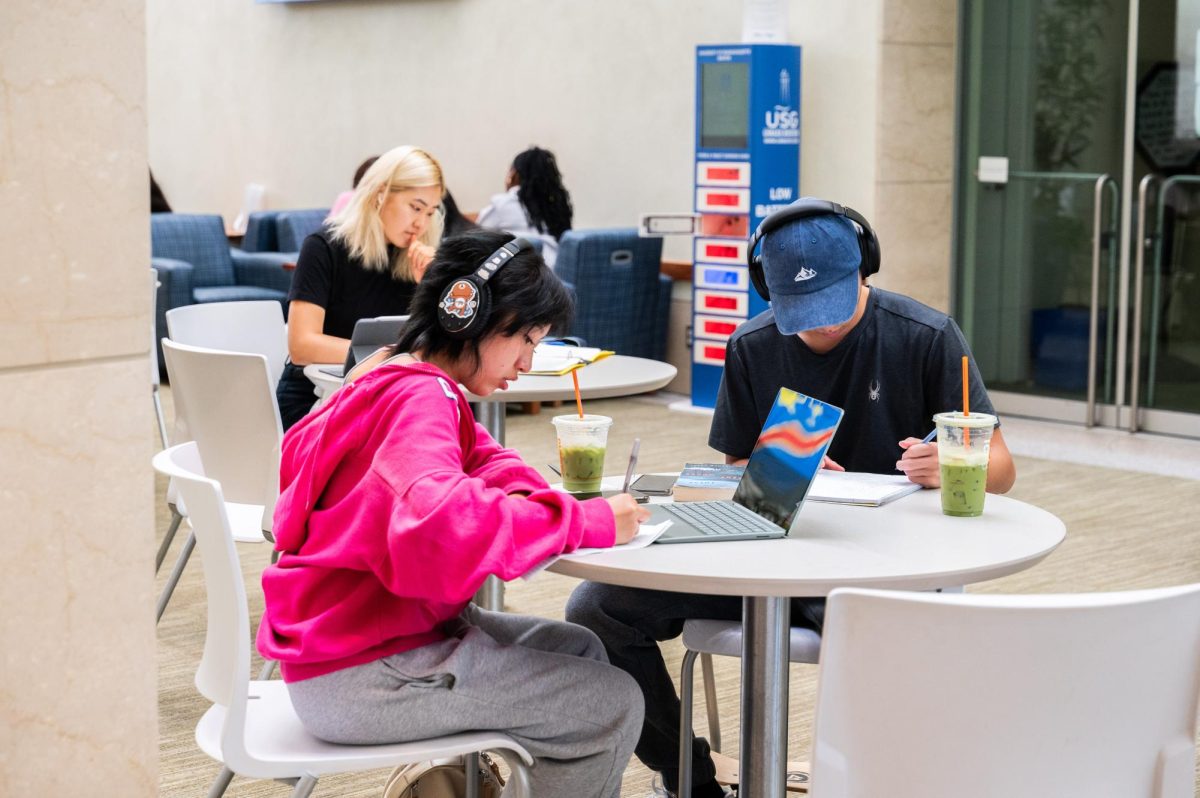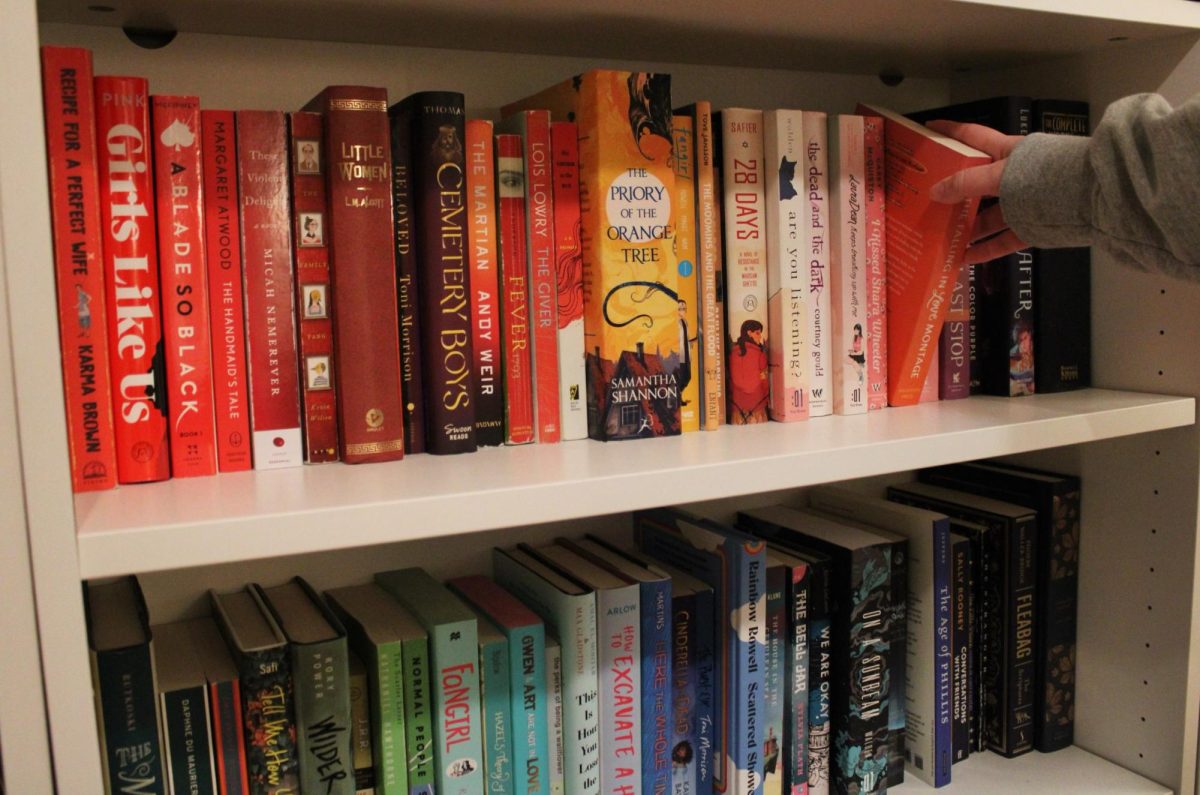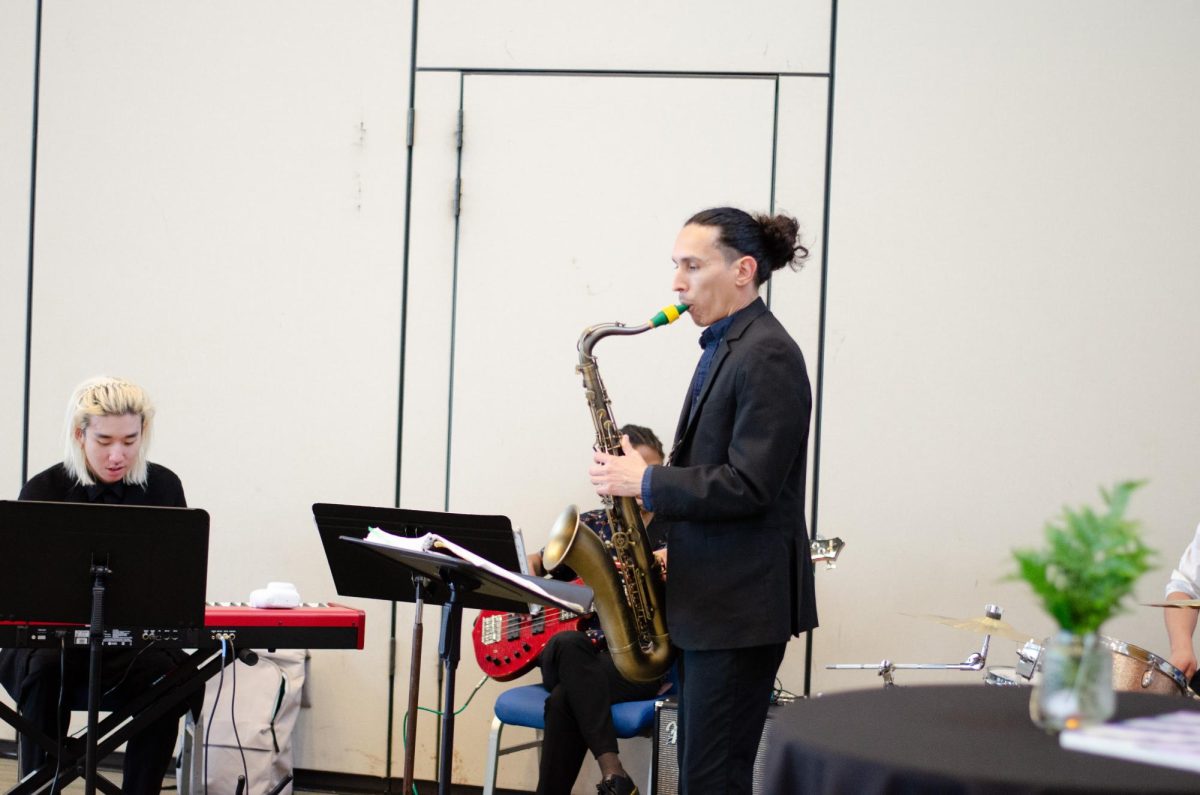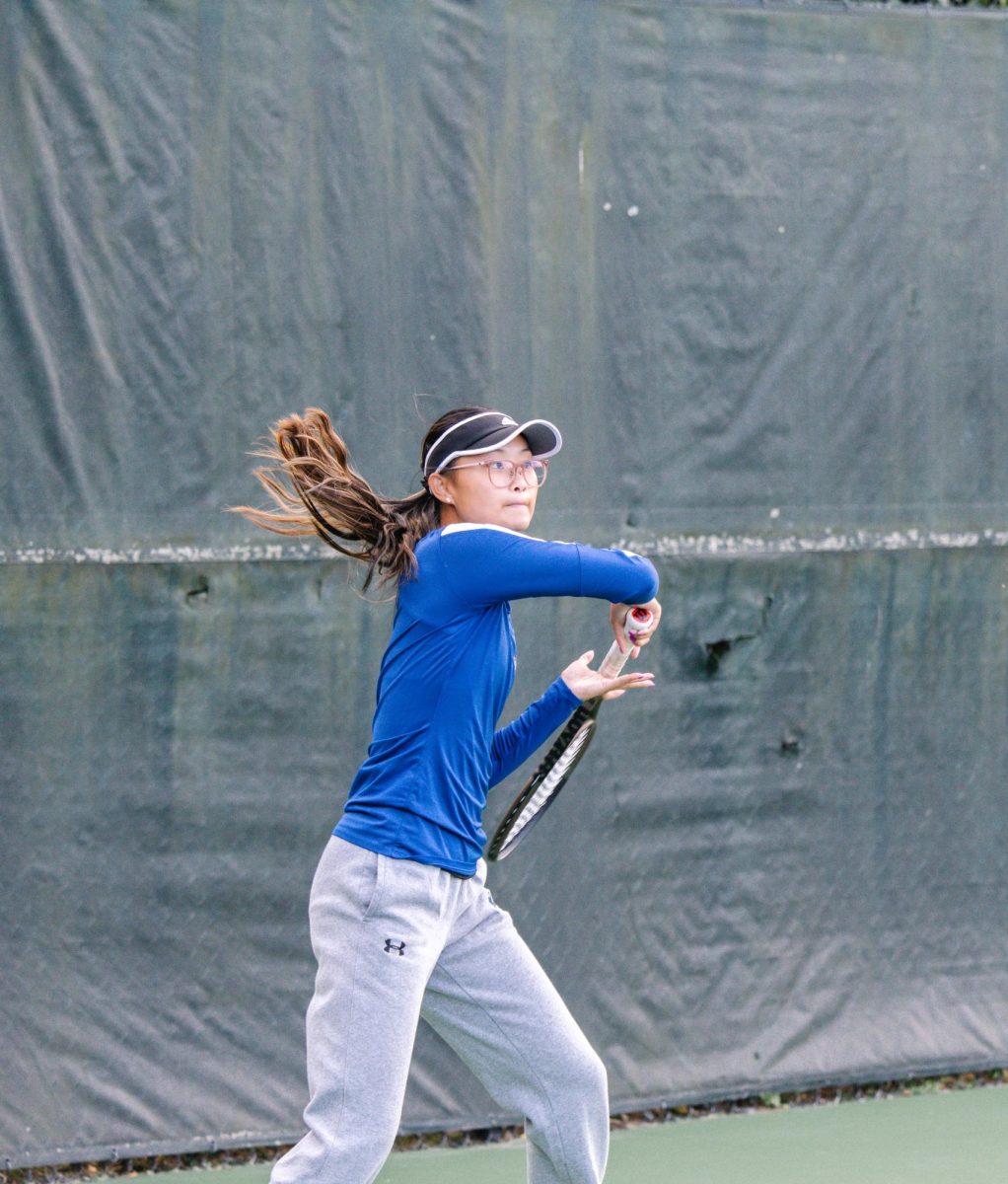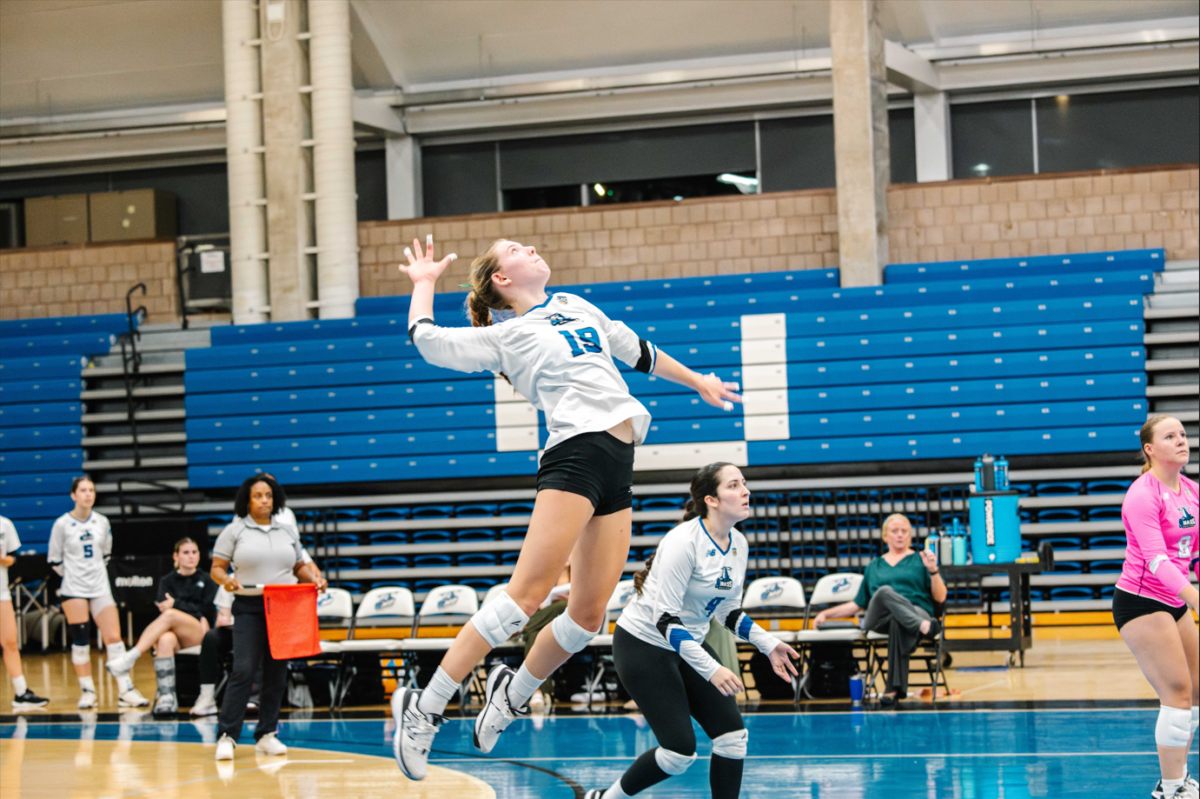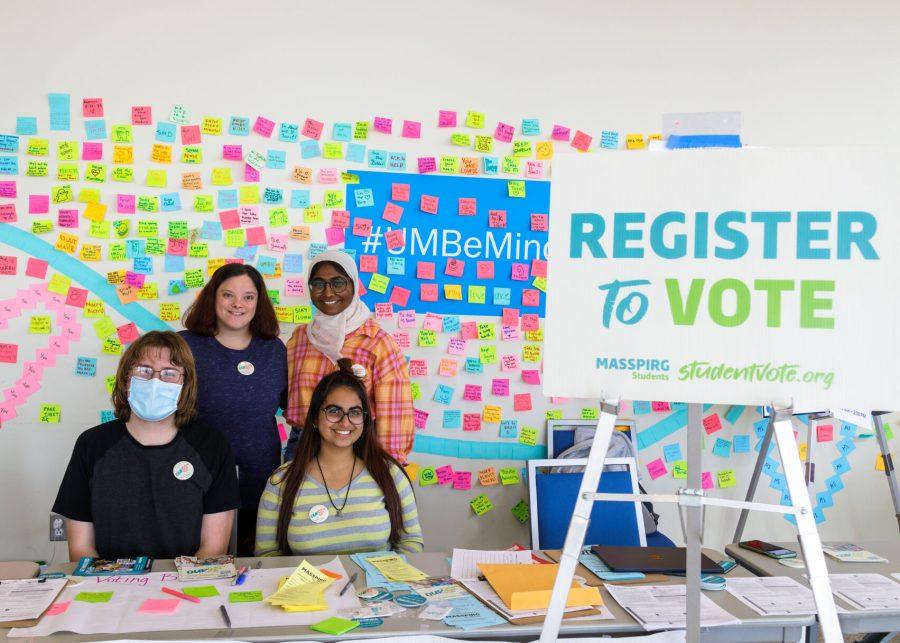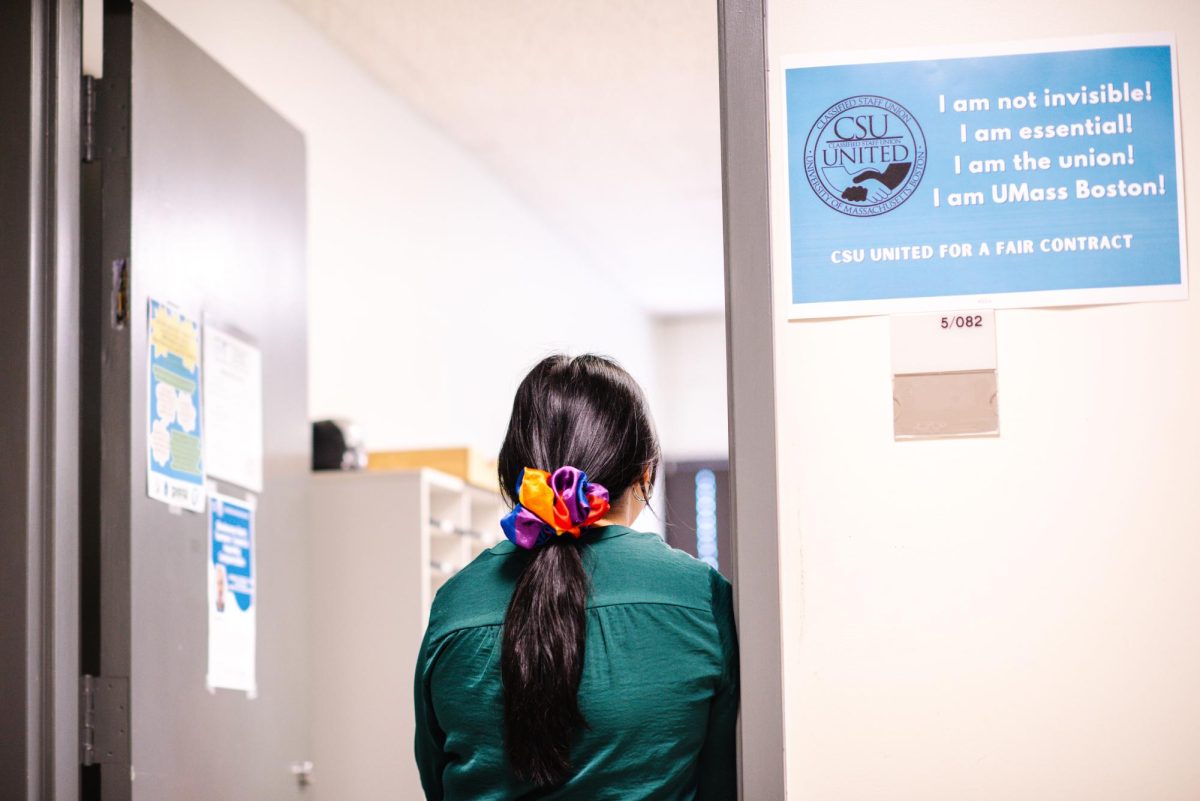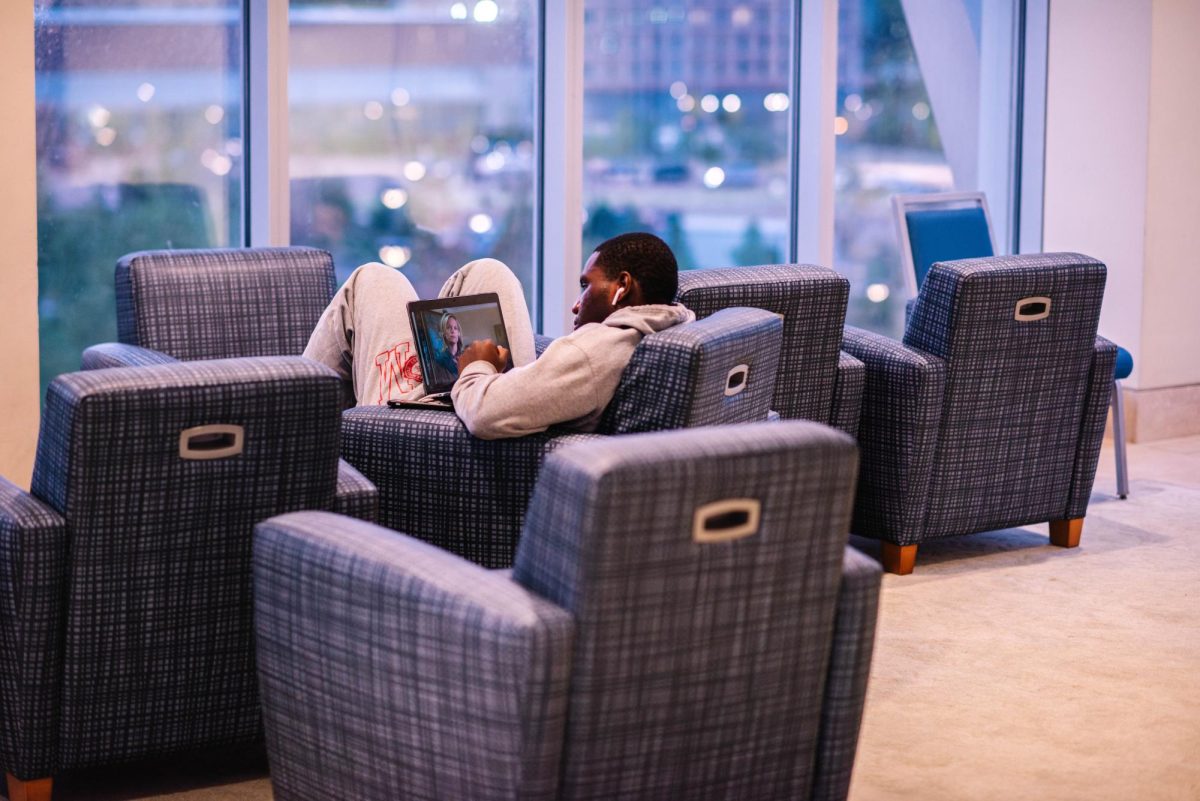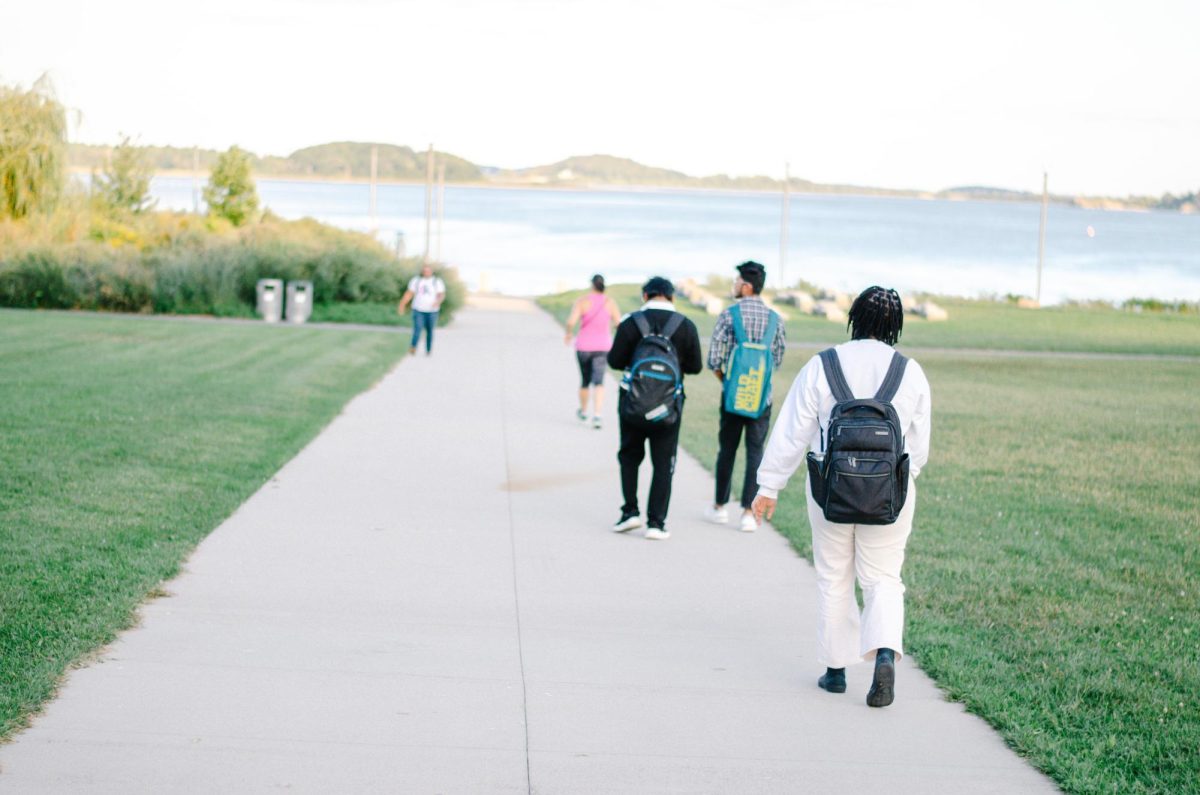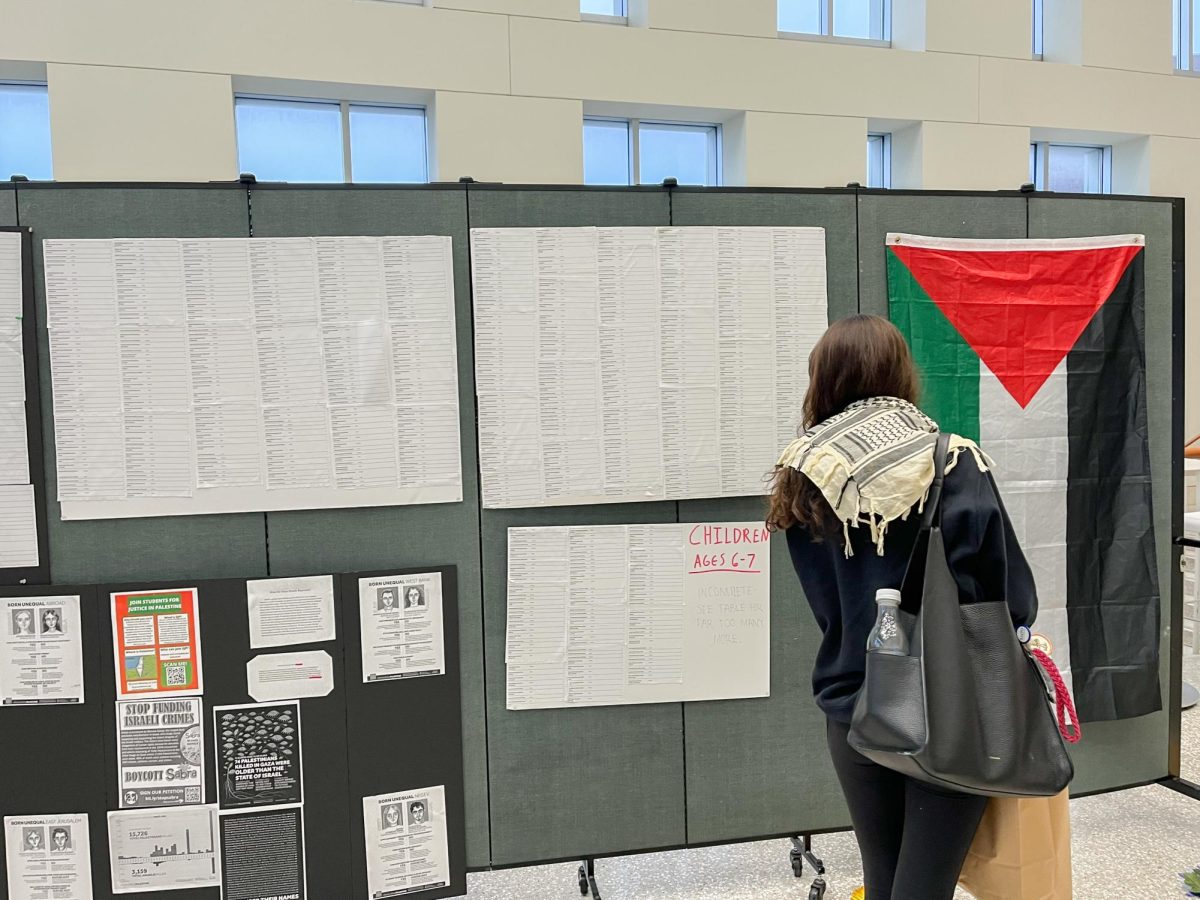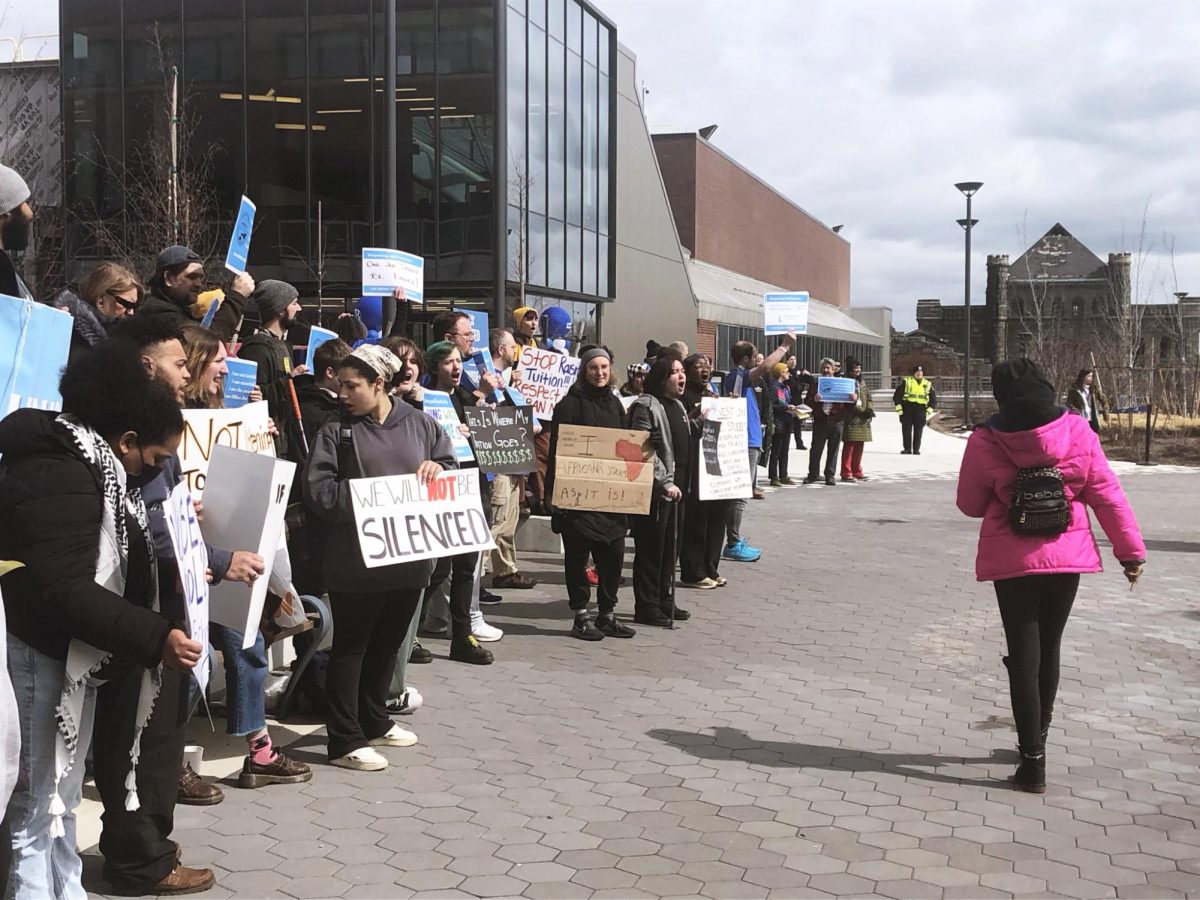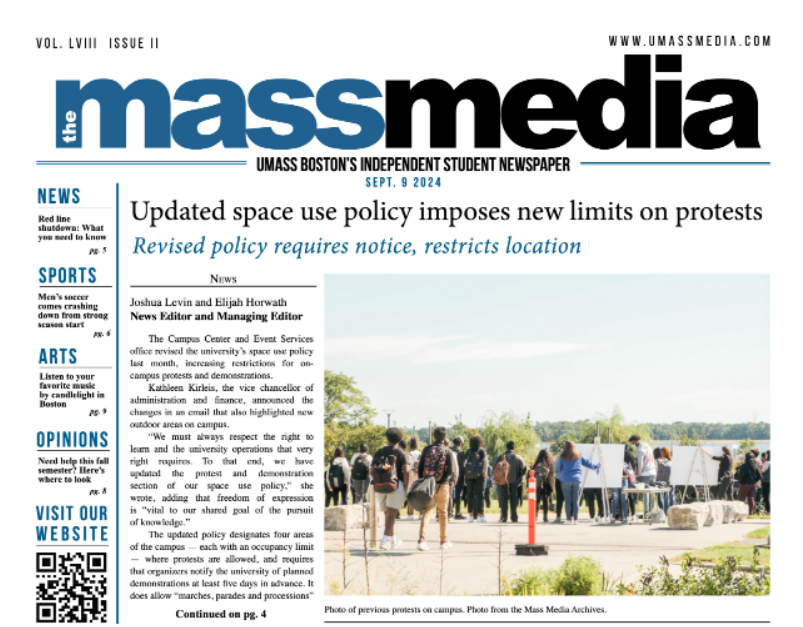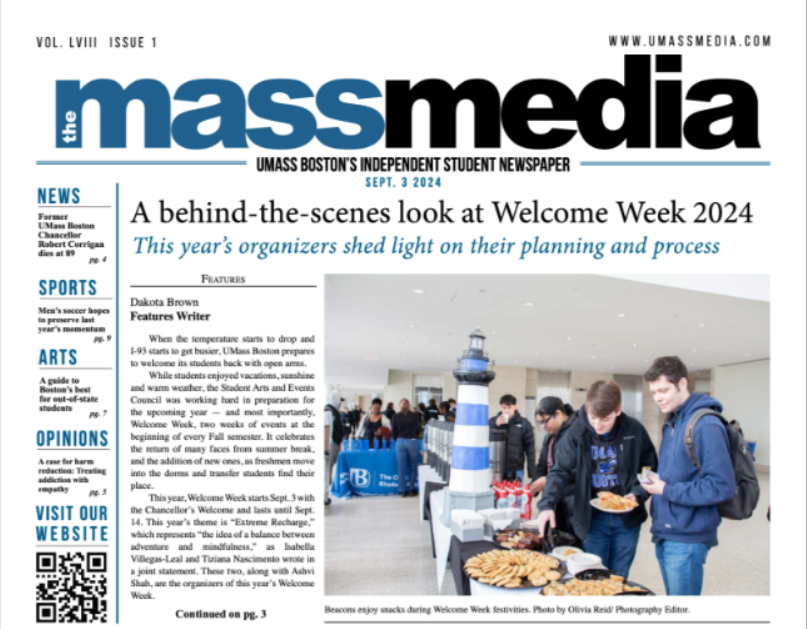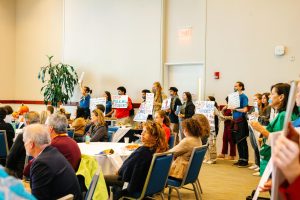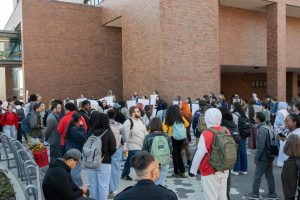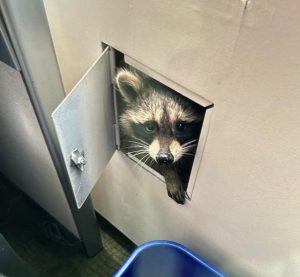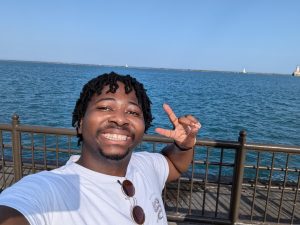ISO Prez:U B Smart, Good Fundraiser
October 8, 2003
Beginning a process expected to take up to a year, members of the University of Massachusetts Presidential Search Committee made an early morning pit stop to question UMass Boston notables about what they wanted in a UMass president.
Chancellor Jo Ann Gora, Search Committee Co-Chair Diane Bissonette Moes, headhunter William Funk from Korn/Ferry International, UMB Vice Provost Winston Langley, and businessman Bob Sheridan opened the Presidential Search Forum with the question, “What do you want in a university president?”
After former University President William Bulger’s resignation, the UMass Board of Trustees formed the Presidential Search Committee as they appointed interim President Jack Wilson to hold down the fort. Since Bulger resigned after a fiery political battle with Governor Mitt Romney, the president’s position has become a hot seat. Romney tried to get the State Legislature to eliminate the president’s office entirely and reorganize UMass in a radical fashion, and threatened the Board of Trustees that he would stack the Board with appointees that would vote Bulger out.
Diane Bissonette Moes, co-chair of the Presidential Search Committee and a downtown lawyer, noted that recruiting efforts are complicated by the political climate, “Its difficult to recruit for a position when the governor has said he wants to eliminate that position.”
Since Bulger’s defeat, Romney has softened on the university, tabling plans to break apart the university and appointing new trustees that are, to all appearances, independent and qualified to run UMass.
The search for a new president remains politically charged and entails a good deal of responsibility. While UMass is a tidy package compared to other land-grant universities throughout the country, it is a 1.5 billion dollar enterprise with 45,000 students and countless programs, institutes, incubators, business partnerships, and is responsible for millions in new research. The president’s job in largely one of fundraising, both in endowments from private institutions, alumni, and state funding, which is approved by the legislature each year. Bulger was spectacularly good at this; as a Beacon Hill insider of the first water, he leveraged UMass into its present position and courted business and research money aggressively.
The new president will need a similar savvy to keep UMass treading water; the state economy is floundering since the dot-bubble burst, and competition for research dollars is intense as more and more state universities move towards privatization.
The Presidential Search Committee is a carefully mixed blend of university representatives and business types, and the executive search firm Korn/Ferry International was selected to help out. The choice was far from accidental; Bill Funk, Korn/Ferry’s representative to the Committee, is the same man that picked UMB Chancellor Jo Ann Gora. Turning to her in his opening remarks, he quipped, “Have you forgiven me for that yet?”
The committee’s visit to UMB was part of a tour that held open forums on every campus and the panel intends to “meet with every group” they can about the choice for a university president. Setting an optimistic timetable, Funk said that he expects the initial pool of candidates to be ready in six weeks. The pool of candidates will be reviewed and narrowed down to a “short list” to be presented to the Board of Trustees.
An experienced hand in picking out university heads, Funk spoke knowledgeably about the process, saying that applicants do not beat down the door for this kind of position, and that “We are in competition with other institutions right now. The field is crowded.” He noted that the Universities of Washington, Idaho, Nebraska, Pennsylvania, and Duke University are also looking for a president. Funk also laid out some of the realities of the job today, noting that the average term of a university president is four to six years. Bulger served for seven years. Funk said, “The Mr. Chips era is probably over. We aren’t seeing anyone [serving as a university president] for twenty, thirty years anymore.”
Robert Sheridan, president of Savings Life Insurance, defended the involvement of business leaders in the committee. Waving a copy of a Mass Media editorial on the search for the new president, he said, “I guess I’m one of the bad guys.” Sheridan was eloquent on his commitment, “As a member of the business community, I can tell you [that] we believe in the UMass system. We are trying to balance low cost and quality. We have a great love and passion for UMass.” He also added that he would like to meet the author of the September 25 editorial outside.
The audience that showed up for the forum slowly swelled as the morning progressed to include a who’s-who of UMB.
Dean of the Graduate College of Education Lester Goodchild, a recent acquisition from the University of Colorado, spoke about the “cross-country movement to privatize and decentralize state institutions,” and noted that UMass may be facing a permanent shift in its funding base.
“We may have to fall back on our own resources over the next 20-30 years,” Dr.. Goodchild added, citing his experience at Colorado. He expressed a strong desire to make sure that any new president should keep higher aims in mind if the university has to support itself, saying, “They should have a sense of altruism and civic pride and need to help those who need us the most.”
Denise Kaplan from the GCOE echoed his words saying, “We need a leader who demonstrates an ethic of care.”
Some forum members were quite specific in their concerns; Director of Institutional Research Jennifer Brown expressed a wish that a new president have an “ability to understand and work with good clean data.”
One of the biggest concerns was the precarious life of the academician and the role that UMass plays in the larger economy. Richard Gelpke, chair of Earth and Geographic Sciences, pointed out that university faculty were well aware of their impact, saying authoritatively, “We are here to give advice on how to grow the economic engine that is this city.” He concluded that candidates should be accomplished in blending science, politics, and business.
Emily McDermott, a UMB Classics professor, was adamant that any candidate for the presidency should have the strongest academic background possible and bluntly stated her concerns, “The political, academic, [and] business worlds have different cultures. What I want is someone able to work in all three spheres, but who grew up in my sphere. I want someone who can work effectively and relentlessly for what is of intrinsic value to us.”
Robert Sheridan thanked the assembly of UMBer’s with high praise,” I am amazed at the thoughtful reflection I’m hearing. You are a great commercial for UMass -I think you people are tops.”

